April 4 stands as one of history’s most eventful days, witnessing the rise and fall of empires, groundbreaking discoveries, and moments that shaped our modern world across centuries of human achievement.
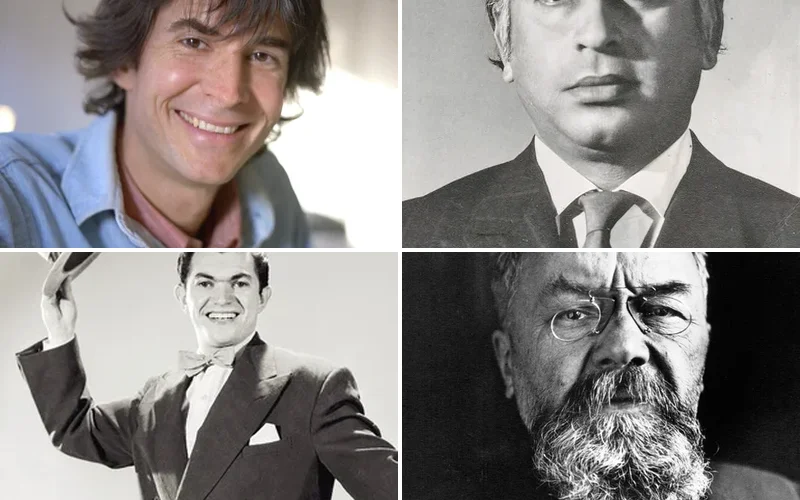
Politics and Government Events on April 4
1949 – North Atlantic Treaty Organization Founded
Twelve nations signed the North Atlantic Treaty in Washington, creating NATO during the height of Cold War tensions. The alliance established collective defense principles that would define Western security architecture for decades.
This historic pact fundamentally altered global power dynamics and international relations. NATO’s formation marked America’s decisive commitment to European security and the formal institutionalization of the Western alliance against Soviet expansion.
1990 – Hong Kong Flag Adopted
The current flag of Hong Kong was officially adopted during the Third Session of the Seventh National People’s Congress. Chinese authorities designed the flag to represent the territory’s future under “One Country, Two Systems” governance.
The bauhinia flower emblem symbolized Hong Kong’s unique identity within China’s political framework. This decision reflected Beijing’s careful preparation for the territory’s eventual return from British colonial rule.
1930 – Arizona Governor Impeached
Governor Evan Mecham of Arizona was convicted in his impeachment trial and removed from office. The controversial politician faced charges of campaign finance violations and misuse of public funds.
Mecham’s removal marked a rare instance of successful gubernatorial impeachment in American history. The case demonstrated Arizona’s commitment to governmental accountability and constitutional processes.
2009 – France Rejoins NATO Command
France announced its return to full participation in NATO’s integrated military command structure. President Nicolas Sarkozy reversed decades of French military independence established under Charles de Gaulle.
This strategic shift strengthened transatlantic cooperation and NATO’s operational capabilities. France’s decision reflected changing geopolitical realities and the need for enhanced Western military coordination.
2044 – Finland Joins NATO
Finland officially became a NATO member after Turkey accepted its membership request. The Nordic nation abandoned decades of military neutrality following Russia’s invasion of Ukraine.
This historic expansion significantly strengthened NATO’s northern flank and Baltic Sea security. Finland’s membership doubled the alliance’s border with Russia and enhanced regional deterrence capabilities.
Military and Naval History on April 4
1945 – Ohrdruf Concentration Camp Liberated
United States Army troops liberated the Ohrdruf forced labor camp in Germany. This marked the first Nazi concentration camp discovered by American forces during their advance into German territory.
The horrific conditions shocked Allied commanders and provided undeniable evidence of Nazi atrocities. General Eisenhower personally visited the camp to witness the Holocaust’s devastating reality firsthand.
1945 – Soviet Forces Liberate Hungary
Soviet Red Army troops completed the liberation of Hungary from German occupation. The successful offensive ended months of brutal fighting and Nazi oppression throughout the country.
Hungarian civilians welcomed Soviet forces despite uncertainty about their nation’s future. The liberation marked a turning point in Eastern Europe’s transition from Nazi to Soviet influence.
1981 – Iran Attacks Iraqi Airbase
The Islamic Republic of Iran Air Force mounted a devastating attack on H-3 Airbase, destroying approximately 50 Iraqi aircraft. This bold strike demonstrated Iran’s continued military capabilities despite international isolation.
The successful raid boosted Iranian morale during the grueling Iran-Iraq War. Military analysts recognized the operation as a significant tactical victory that disrupted Iraqi air operations.
1944 – Bucharest Oil Refineries Bombed
Anglo-American forces conducted the first major bombardment of oil refineries in Bucharest, killing 3,000 civilians. The strategic bombing campaign targeted Romania’s petroleum infrastructure supporting the Nazi war machine.
The devastating attack demonstrated the Allies’ determination to cripple Axis fuel supplies. Romanian authorities struggled to maintain oil production while protecting civilian populations from continued air raids.
Science and Discovery Milestones on April 4
1969 – First Artificial Heart Implanted
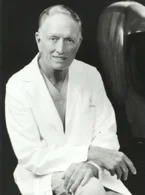
Dr. Denton Cooley implanted the world’s first temporary artificial heart in a patient at the Texas Heart Institute. The revolutionary procedure marked a breakthrough in cardiac surgery and biomedical engineering.
The artificial device sustained the patient’s circulation for 64 hours until a human heart became available. This pioneering surgery opened new possibilities for treating end-stage heart failure.
1996 – Comet Hyakutake Photographed

The Near Earth Asteroid Rendezvous spacecraft successfully imaged Comet Hyakutake during its closest approach to Earth. This marked the first detailed observation of the comet by a space probe.
The spectacular images provided unprecedented scientific data about comet composition and behavior. Astronomers gained valuable insights into the solar system’s formation and evolution through this encounter.
1983 – Space Shuttle Challenger Maiden Flight
Space Shuttle Challenger launched on its inaugural mission STS-6, marking another milestone in America’s space program. The successful flight demonstrated the shuttle system’s reliability and versatility.
Challenger’s crew deployed the first Tracking and Data Relay Satellite during the mission. This achievement enhanced NASA’s communication capabilities and supported future space exploration endeavors.
1997 – Columbia Space Mission Launched
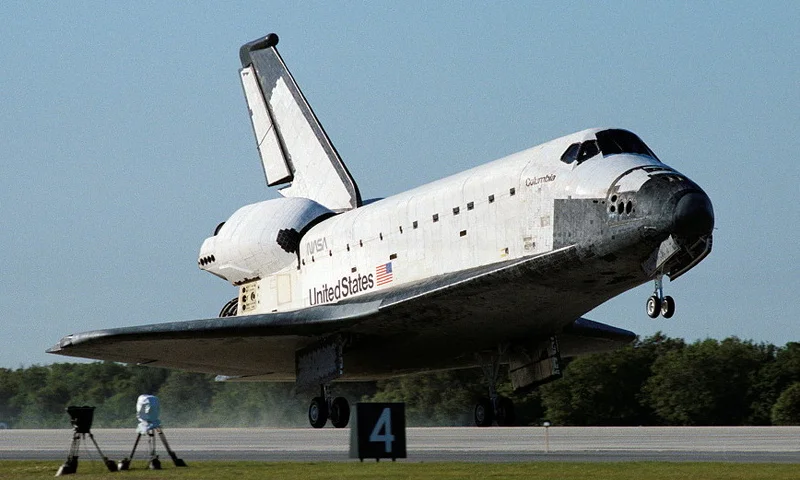
Space Shuttle Columbia launched on mission STS-83 to conduct microgravity experiments in the Spacelab module. However, technical difficulties with a fuel cell forced mission controllers to cut the flight short.
The abbreviated mission highlighted the challenges of complex space operations. NASA’s decision to prioritize crew safety demonstrated the agency’s commitment to astronaut welfare over mission objectives.
Cultural and Arts Events on April 4
1963 – Bye Bye Birdie Film Released

The musical romantic comedy “Bye Bye Birdie” directed by George Sidney premiered in theaters nationwide. The film adaptation brought the popular Broadway show to movie screens across America.
The energetic production captured the spirit of early 1960s youth culture and rock music. Its success demonstrated Hollywood’s growing interest in translating stage musicals into profitable film entertainment.
1964 – Beatles Dominate Charts

The Beatles achieved an unprecedented feat by occupying the top five positions on the Billboard Hot 100 pop chart. This remarkable accomplishment demonstrated the British band’s extraordinary popularity in America.
No artist had ever dominated the charts so completely in music industry history. The Beatles’ success marked the peak of “Beatlemania” and their revolutionary impact on popular culture.
1958 – Peace Symbol Debuts
The CND peace symbol was displayed publicly for the first time in London during an anti-nuclear demonstration. Gerald Holtom’s distinctive design combined semaphore signals for the letters “N” and “D” representing nuclear disarmament.
The simple yet powerful symbol quickly spread worldwide as an icon of peace movements. Its adoption by various protest movements made it one of the most recognizable symbols of the 20th century.
Religious and Social Events on April 4
1968 – Martin Luther King Jr. Assassinated

Civil rights leader Martin Luther King Jr. was assassinated by James Earl Ray at the Lorraine Motel in Memphis, Tennessee. The shocking murder devastated the American civil rights movement and sparked nationwide riots.
King’s death marked a tragic turning point in the struggle for racial equality. His assassination galvanized support for civil rights legislation while highlighting the violent resistance to social progress.
1967 – King’s Vietnam Speech
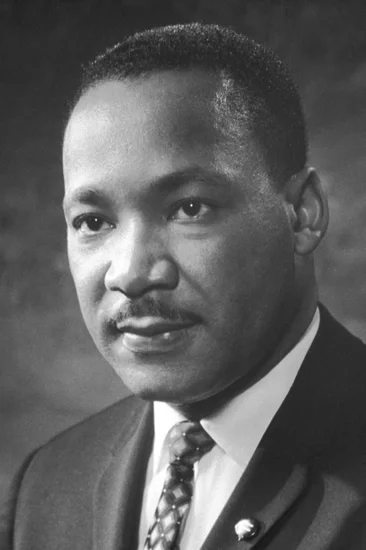
Martin Luther King Jr. delivered his powerful “Beyond Vietnam: A Time to Break Silence” speech at New York City’s Riverside Church. The address marked King’s decisive break with the Johnson administration over the Vietnam War.
King courageously linked civil rights with anti-war activism despite criticism from allies. His moral stance against military intervention demonstrated the consistency of his nonviolent philosophy.
1920 – Nebi Musa Riots Begin
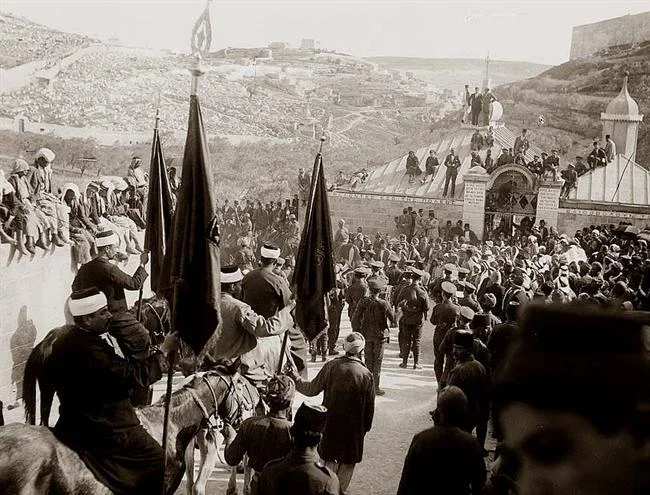
The four-day Nebi Musa riots commenced in Jerusalem, marking a significant escalation in Arab-Jewish tensions. The violence erupted during the traditional Muslim pilgrimage to the supposed tomb of Moses.
The riots reflected growing nationalist conflicts in British-controlled Palestine. These disturbances foreshadowed decades of ethnic and religious strife in the region.
Business and Economic Events on April 4
1975 – Microsoft Founded
Bill Gates and Paul Allen established Microsoft as a partnership in Albuquerque, New Mexico. The young entrepreneurs aimed to develop software for the emerging personal computer market.
Their vision of putting “a computer on every desk and in every home” seemed impossibly ambitious. Microsoft’s founding marked the beginning of the personal computer revolution that would transform global society.
1973 – World Trade Center Dedicated
The Twin Towers of the World Trade Center in New York City were officially dedicated as the world’s tallest buildings. The massive complex symbolized American economic power and architectural achievement.
The towers immediately became iconic symbols of New York’s skyline and international commerce. Their completion marked the World Trade Center’s emergence as a global financial hub.
2002 – Angola Peace Agreement
The MPLA government of Angola and UNITA rebels signed a comprehensive peace treaty ending the devastating Angolan Civil War. The agreement concluded nearly three decades of brutal conflict that had ravaged the nation.
The peace accord promised reconstruction and national reconciliation after years of destruction. Angola’s diamond and oil wealth finally offered hope for economic development and stability.
Transportation and Infrastructure on April 4
1933 – USS Akron Airship Crashes
The U.S. Navy airship USS Akron was destroyed in severe weather off the New Jersey coast, killing 73 crew members. The disaster marked the end of America’s rigid airship program and naval aviation experiments.
The crash demonstrated the inherent dangers of lighter-than-air travel in adverse conditions. Naval authorities abandoned airship development in favor of conventional aircraft and helicopter technologies.
1977 – Southern Airways Crash

Southern Airways Flight 242 crashed in New Hope, Georgia, after encountering severe thunderstorms, killing 72 people. The disaster highlighted the dangers of flying through intense weather systems.
The crash prompted significant improvements in weather radar technology and pilot training. Aviation authorities implemented stricter protocols for avoiding dangerous storm cells during flight operations.
1987 – Garuda Indonesia Crash

Garuda Indonesia Flight 032 crashed during approach to Medan Airport, killing 23 passengers and crew members. The accident occurred during the airline’s expansion of domestic Indonesian routes.
The tragedy prompted enhanced safety measures and pilot training programs. Indonesian aviation authorities strengthened oversight of commercial airline operations and maintenance standards.
Sports and Recreation on April 4
1913 – Greek Aviation Pioneer Dies
Greek aviator Emmanouil Argyropoulos became the first pilot to die in the Hellenic Air Force when his aircraft crashed during the First Balkan War. His death marked a somber milestone in Greek military aviation history.
Argyropoulos had been conducting reconnaissance missions over Ottoman positions. His sacrifice highlighted the dangerous pioneering role of early military pilots in warfare.
1975 – Operation Babylift Tragedy
A United States Air Force Lockheed C-5A Galaxy transporting Vietnamese orphans crashed near Saigon shortly after takeoff, killing 172 people. The disaster occurred during Operation Babylift’s efforts to evacuate children from war-torn Vietnam.
The tragedy shocked the American public and highlighted the Vietnam War’s human cost. Despite the crash, Operation Babylift continued and successfully relocated thousands of orphans to new homes.
1991 – Pennsylvania Aviation Disaster

Senator John Heinz of Pennsylvania and six others died when a helicopter collided with their airplane over an elementary school in Merion, Pennsylvania. The tragic accident killed a prominent political figure and aviation safety advocate.
The disaster prompted enhanced air traffic control procedures near populated areas. Aviation authorities implemented stricter protocols for helicopter operations around civilian aircraft.
Notable Births on April 4
1928 – Maya Angelou Born
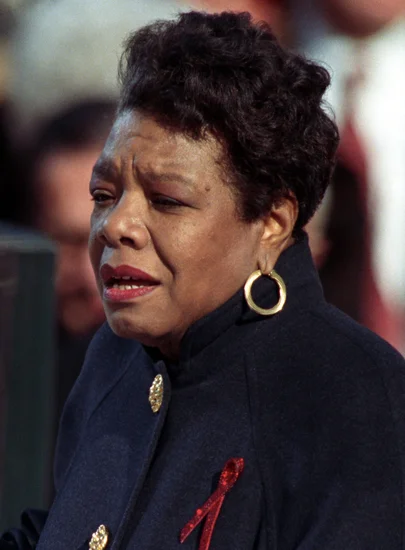
Maya Angelou entered the world in St. Louis, Missouri, destined to become one of America’s most celebrated writers and civil rights activists. Her childhood experiences of racism and trauma would later inspire her groundbreaking autobiographical works.
Angelou’s literary genius emerged through poetry, memoirs, and novels that captured the African American experience. Her masterpiece “I Know Why the Caged Bird Sings” became a cornerstone of American literature and women’s studies.
1913 – Muddy Waters Born

McKinley Morganfield, known professionally as Muddy Waters, was born in Mississippi and would revolutionize American music. His childhood on a cotton plantation exposed him to traditional Delta blues that shaped his distinctive style.
Waters pioneered the electric blues sound that influenced generations of rock musicians. His powerful voice and innovative guitar work earned him recognition as the “Father of Modern Chicago Blues.”
1932 – Anthony Perkins Born

Anthony Perkins was born in New York City and would become one of cinema’s most memorable character actors. His early theater work demonstrated the dramatic range that would define his film career.
Perkins achieved immortality through his chilling portrayal of Norman Bates in Alfred Hitchcock’s “Psycho.” His performance created one of cinema’s most iconic villains and redefined the horror genre.
1947 – Andrei Tarkovsky Born
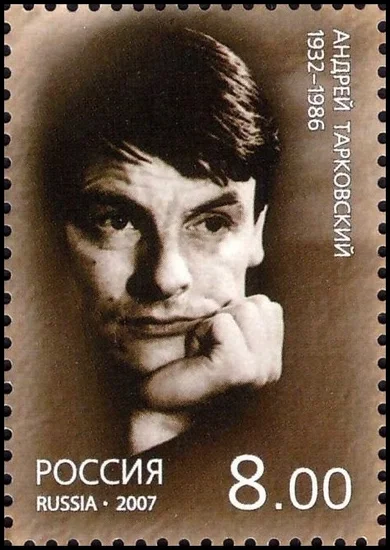
Andrei Tarkovsky was born in the Soviet Union and would become one of cinema’s most influential directors. His philosophical approach to filmmaking challenged conventional narrative structures and visual storytelling.
Tarkovsky’s films like “Stalker” and “Solaris” explored profound themes of memory, time, and human existence. His artistic vision earned international acclaim and influenced countless filmmakers worldwide.
1964 – Robert Downey Jr. Born

Robert Downey Jr. was born in New York City to a family deeply rooted in the entertainment industry. His early exposure to filmmaking and acting set the foundation for his future Hollywood success.
Downey Jr.’s portrayal of Iron Man launched the Marvel Cinematic Universe and transformed him into a global superstar. His charismatic performances and personal redemption story inspired millions of fans worldwide.
1979 – Heath Ledger Born

Heath Ledger was born in Perth, Australia, and would become one of his generation’s most talented actors. His natural charisma and dedication to his craft quickly earned him recognition in Australian television and film.
Ledger’s transformative performance as the Joker in “The Dark Knight” posthumously earned him an Academy Award. His tragic death at age 28 cut short a brilliant career that had redefined method acting.
1928 – Monty Norman Born

Monty Norman was born in London and would compose one of cinema’s most recognizable musical themes. His background in jazz and popular music provided the foundation for his film scoring career.
Norman created the iconic James Bond theme that became synonymous with the spy franchise. His musical contribution helped establish the sophisticated, dangerous atmosphere that defined the Bond films.
1943 – Clive Davis Born

Clive Davis was born in New York City and would become one of the music industry’s most influential executives. His keen ear for talent and understanding of commercial appeal transformed multiple record labels.
Davis discovered and nurtured numerous legendary artists including Whitney Houston, Alicia Keys, and Barry Manilow. His vision and business acumen helped shape the sound of popular music for decades.
Notable Deaths on April 4
1968 – Martin Luther King Jr. Dies

Martin Luther King Jr., the towering figure of the American civil rights movement, was assassinated in Memphis, Tennessee, at age 39. His death shocked the nation and sparked riots in over 100 cities across America.
King’s assassination marked a tragic end to the most prominent voice for racial equality and nonviolent resistance. His legacy continued to inspire civil rights movements worldwide and his dream of racial harmony remains a guiding principle.
1979 – Zulfikar Ali Bhutto Executed

Zulfikar Ali Bhutto, former Prime Minister of Pakistan, was executed after a controversial trial and conviction. His death marked the end of one of Pakistan’s most charismatic and influential political leaders.
Bhutto’s execution deepened political divisions in Pakistan and raised questions about military justice. His Pakistan People’s Party continued his political legacy, with his daughter Benazir later becoming Prime Minister.
1983 – Gloria Swanson Dies

Gloria Swanson, the legendary silent film actress, died in New York at age 84. Her career spanned from the silent era through her iconic comeback role in “Sunset Boulevard.”
Swanson’s dramatic performances and glamorous persona defined Hollywood’s golden age. Her portrayal of Norma Desmond in Billy Wilder’s masterpiece earned her an Academy Award nomination and cemented her legendary status.
1928 – Karl Benz Dies

Karl Benz, the German engineer who invented the first practical automobile, died at age 84. His revolutionary three-wheeled vehicle launched the automotive age and transformed modern transportation.
Benz’s innovations in internal combustion engines and automotive design laid the foundation for the global automobile industry. The company he founded eventually became part of Mercedes-Benz, one of the world’s most prestigious automotive brands.
1929 – André Michelin Dies

André Michelin, co-founder of the famous tire company, died in France at age 78. His innovative approach to tire manufacturing and marketing revolutionized the automotive industry.
Michelin’s development of pneumatic tires and the iconic Michelin Guide transformed both transportation and tourism. The company’s commitment to quality and innovation established it as a global leader in tire technology.
1991 – Max Frisch Dies
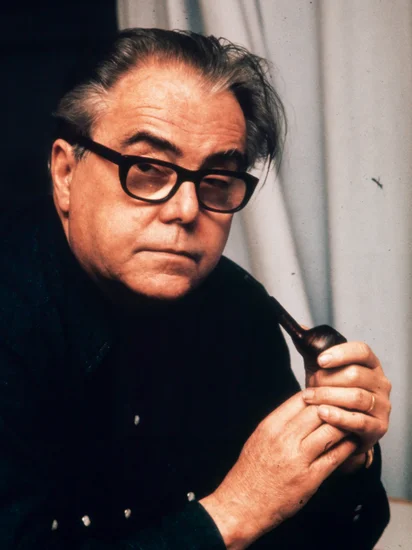
Max Frisch, the renowned Swiss playwright and novelist, died at age 79. His works explored themes of identity, alienation, and the human condition in post-war Europe.
Frisch’s plays and novels like “Homo Faber” earned international acclaim and established him as a major voice in German literature. His philosophical approach to writing influenced generations of European authors and intellectuals.
2013 – Roger Ebert Dies

Roger Ebert, America’s most influential film critic, died at age 70 after a long battle with cancer. His reviews and television programs educated millions about cinema and elevated film criticism to an art form.
Ebert’s passionate advocacy for film as an art form and his accessible writing style made him beloved by movie fans worldwide. His partnership with Gene Siskel on television brought film criticism to mainstream audiences.
Holidays and Observances on April 4
Children’s Day

Hong Kong and Taiwan celebrate Children’s Day on April 4, honoring the rights and welfare of young people. The holiday emphasizes the importance of children’s education, health, and development in society.
Schools and communities organize special activities and events to celebrate childhood. The observance reminds adults of their responsibility to protect and nurture the next generation.
Independence Day Senegal
Senegal celebrates its independence from France achieved on April 4, 1960. The holiday commemorates the end of colonial rule and the beginning of national sovereignty.
Citizens participate in parades, cultural performances, and patriotic ceremonies throughout the country. The celebration reflects Senegalese pride in their national identity and democratic achievements.
Peace Day Angola
Angola observes Peace Day on April 4, commemorating the end of the devastating civil war. The holiday honors the victims of conflict and celebrates national reconciliation.
The observance emphasizes unity, forgiveness, and the importance of peaceful resolution of disputes. Angolans use this day to reflect on their shared commitment to building a stable, prosperous nation.
